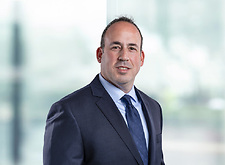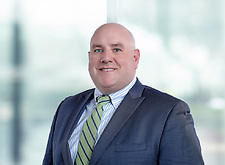Failing to Protect Against COVID-19: Can My Business Be Sued?
In the current climate of the pandemic, plaintiffs are bringing claims against businesses, alleging a failure to act to prevent the spread of COVID-19 among their employees and customers.
Standard for Liability
In New York, whether a business may be liable for a failure to act depends on whether it owes a legally recognized duty of care or protection to a potential plaintiff. This duty differs based upon who a plaintiff is.
A business owes a duty of care to its employees and customers to protect them from foreseeable harm. As a general matter, it does not owe any duty to those with whom it has no relationship, although certain businesses (such as common carriers) have a greater obligation of protection toward unrelated parties. For example, airlines, railroad lines, and taxi services have a duty to protect their employees, passengers, and even strangers from harms associated with a trespasser. And, in all cases, the harm suffered must be foreseeable, meaning it must be reasonable to believe that harm would result from a business’s failure to act. In other words, the business had a reasonable opportunity to warn of the harm or take action to protect its employees and customers. Once a duty of care is established, the question is whether the business breached that duty and whether that breach was the cause of the plaintiff’s injuries. It is worth noting that the failure to protect may also result in an additional claim for damages if the failure caused the death of an employee or customer.
Significantly, the newly enacted New York Emergency or Disaster Treatment Protection Act, Article 30-D of the Public Health Law, provides an exception to the traditional test for negligence by granting certain health care facilities and professionals “immunity from any liability, civil or criminal, for any harm or damages alleged to have been sustained as a result of an act or omission in the course of arranging for or providing health care services.” For more information on the scope of this Act, please see: /newsroom-publications-11901.html .
Negligence and COVID-19
During the course of the COVID-19 pandemic, employees, customers, and even unknown strangers may claim to be harmed by a business’s failure to warn of past exposures to COVID-19 at its workplace and failure to protect present and future employees, customers, and strangers from exposure. Confirming the global recognition of the risks of this pandemic, Governor Cuomo issued Executive Order 202.8, effective March 22, 2020, requiring the reduction of an employer’s workforce by 100% for non-essential businesses. And any business violating Executive Order 202.8 risks a civil penalty ranging from $2,000 to $10,000 per violation, as well as injunctive relief. So, businesses must carefully consider how to go forward in this fraught environment.
Three recent cases illustrate how a business can find itself caught up in litigation over an alleged failure to protect during the pandemic:
On March 9, 2020, plaintiffs stranded aboard the Grand Princess cruise ship filed suit against the cruise ship’s owner and operator, Princess Cruise Lines. Plaintiffs allege that Princess knew that passengers who had disembarked from a prior voyage of the Grand Princess on February 21 had been potentially exposed to COVID-19, having sent emails on February 25 to those very passengers advising them of the potential exposure. Moreover, sixty-two passengers on plaintiffs’ cruise were on the prior cruise and were exposed to passengers who were infected with, and subsequently passed away from, the virus. According to the complaint, on February 21, Princess began plaintiffs’ cruise with three thousand people aboard, with the full knowledge that some of the passengers had been exposed on the previous voyage.
Alleging negligence and gross negligence, plaintiffs claim that Princess placed them “at actual risk of immediate physical injury” because the cruise line knew of the virus outbreak one month before and failed to have proper screening protocols in place prior to boarding the passengers on plaintiffs’ voyage. None of the sixty-two passengers from the previous cruise that were present on plaintiffs’ voyage were tested until two weeks later. Plaintiffs also allege that Princess failed to warn them of the risk of exposure to the potentially deadly virus and, consequently, was grossly negligent when it decided to sail, knowing of the risk of exposure and failing to warn of that risk. See Weissberger v. Princess Cruise Lines, Ltd., Civ. No. 2:20-cv-02267.
The widespread publication of the lawsuit against Princess may have led to another global cruise line being sued. On April 7, Costa Cruises, a subsidiary of Carnival Cruise Lines, was sued in a putative class action in the United States District Court for the Southern District of Florida. There, plaintiffs allege that Costa Cruises negligently allowed the Costa Luminosa to sail knowing that a previous passenger exhibited symptoms of COVID-19 — resulting in 2,000 passengers boarding a “ticking coronavirus time bomb.” More than fifty passengers on the second voyage were diagnosed with COVID-19. See Turner v. Costa Crociere SPA, Civ. No. 1:20-cv-21481.
Recently, after the deaths of two Walmart, Inc. employees at the same facility, Walmart was sued in a wrongful death lawsuit alleging that it: (1) failed to properly respond to its employees’ symptoms of COVID-19; and (2) failed to share information related to its symptomatic employees’ conditions with other employees to safeguard them with protective measures. The complaint, filed by one of the decedent-employee’s brothers, alleges that Walmart’s “willful and wanton misconduct and reckless disregard” directly led to the decedent’s death. See Toney Evans v. Walmart, Inc. et al, Case No. 2020-L-003938 (Circuit Court, Cook County, Ill.).
Lessons Learned
Given the widespread devastation and confusion wrought by the pandemic, businesses operating during this time should carefully consider how to protect themselves from, and defend against, claims relating to the COVID-19 infection. Hodgson Russ attorneys can help you navigate this complicated time and space and identify how best to protect your business, employees, and customers. To learn more about this litigation and potential liabilities for your business, please contact James J. Zawodzinski, Jr. (716.848.1595) or Reetuparna Dutta (716.848.1626).
Featured
- Partner
- Partner
- Partner
- Partner
- Partner
- Partner
- Partner
- Partner
- Partner
- Partner
- Partner
- Partner
- Partner
- Partner
- Partner
- Partner
- Partner
- Partner
- Partner
- Partner
- Partner
- Partner
- Partner
- Partner
- Partner
- Partner
- Senior Associate
- Senior Associate
- Partner
- Senior Associate
- Partner
- Albany & Saratoga Springs Offices Managing Partner
- Partner
- Partner
- Partner
- Partner
- Senior Associate
- Managing Partner






































